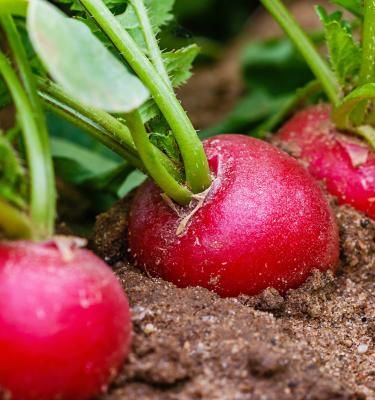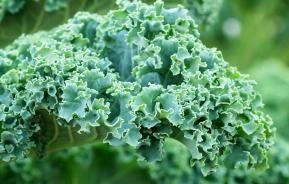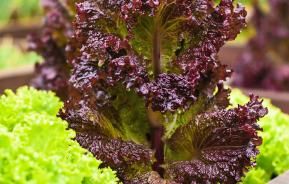The radish is an edible root vegetable of the Brassicaceae family that was domesticated in Europe in pre-Roman times. Radishes are grown and consumed throughout the world, being mostly eaten raw as a crunchy salad vegetable.
Health benefits of radish
A favourite vegetable in salads, radishes are sweet in taste, and colourful in appearance, varying from white to red, and purple to black. You can eat the leaves, flowers, pods and seeds, and they can be eaten raw, cooked or pickled. While the oil can be extracted and used in beauty and health applications. High in nutrients, low in calories. Add fibre and flavour to your meals without any excessive calorie consumption. From aiding hydration to healing insect bites, here are 12 reasons to add radishes to your trolley this summer...
Hydrating
The vegetable contains high levels of water, vitamin C, phosphorus and zinc, making radish a nourishing food for the summer months due to its hydrating properties. While radishes are also naturally cooling, highly regarded in eastern medicine for their ability to decrease excess heat.
Digestive system
Radishes have a calming effect on the body’s digestive system, in effect relieving indigestion and bloating. Radishes are a natural agent for the body, helping break down stagnant food and toxins and eliminating them from the body.
Eliminates toxins
Radishes are thoughts to have toxin purging elements and are believed to help break down cancer-causing free radicals, eliminating them from the body. Radishes belong to the cruciferous vegetable family and contain phytonutrients, fibre, and other cancer-protecting vitamins and minerals.
Skin disorders
Vitamin-C, phosphorus, zinc and elements of the vitamin-B complex in radishes are useful in adding mild skin conditions. While the water level in radishes supports maintaining moisture levels. Radish even makes a good cleanser and homemade face pack. Due to its disinfectant properties, radishes can help clear up disorders like dry skin, rashes, and cracked skin.
Preventative of infection
Radishes are also believed to help prevent viral infections, due to their high vitamin C levels which act as a natural cleansing agent. So by eating high levels of the vegetable, you can actively help prevent contracting viral infections.
Cold aiding
If you are feeling stuffy and sniffing, try reaching for a radish. The vegetables pungent taste and spice helps rid the body of excess mucus and is perfect for helping fight the common cold. Radishes help clear sinus problems and help aid a sore throat.
Jaundice
Due to these properties, radishes are proven to help prevent and heal a number of physical alignments. Radishes act as a powerful detoxifier. They purify the blood and eliminate toxins and waste in the stomach and liver. Therefore, radishes are useful in treating jaundice because it removes bilirubin and maintains its production at a stable level.
Respiratory disorders
Radishes have anti-congestive properties, meaning that they decrease congestion of the respiratory system including irritation of the nose, throat, wind-pipe and lungs that can come from infections, allergies and other causes. They are also an effective disinfectant and vitamin-rich, which further protects from infection.
Immune system health
Radishes have the capability to even improve your immune system. Half a cup of radish per day in a salad or as a snack equals 15% of your daily intake of Vitamin-C. Reaching your recommended level of Vitamin-C intake on a daily basis can rejuvenate and refresh your immune system by replenishing antioxidants and white blood cells.
Insect bites
The anti-pruritic properties found in radishes can be used as an effective treatment for insect bites as well as bee stings. While radish juice is also proven to reduce pain and swelling while soothing the affected area.
Weight loss
Radishes are filling, low calorie, and high in roughage and water, making the vegetable a dietary wonder. Furthermore, they are high in fibre, which means that they regularise bowel movements, which also aids weight loss, and increases metabolism.
Whilst the apparent benefits of radishes are quite extraordinary, it is always important to seek advice from a medical professional.








